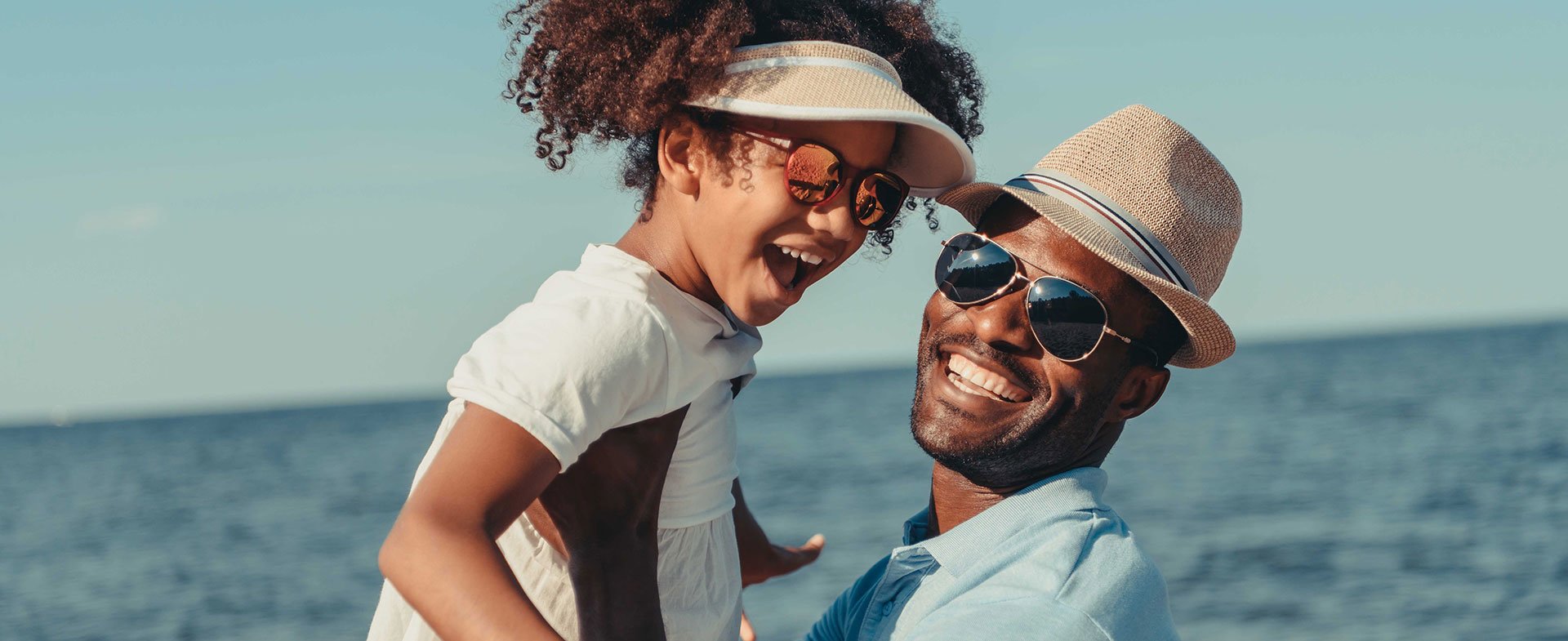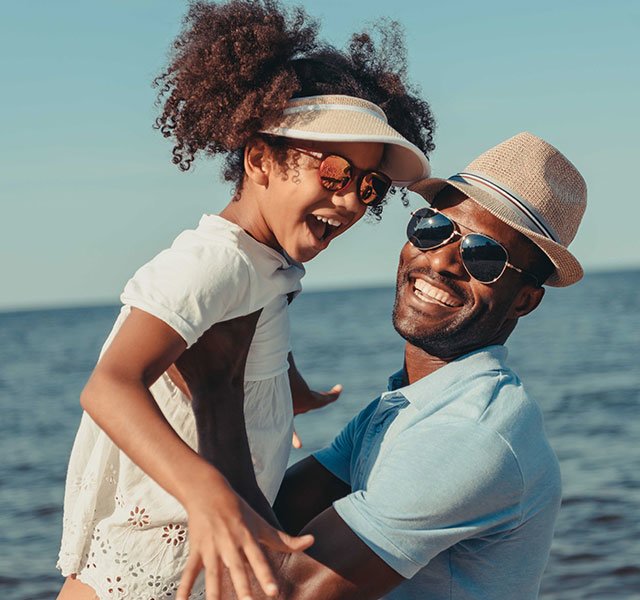Once summer arrives and Michiganders fully come out of hibernation, it can be tempting to make up for lost time, and go out and enjoy the weather without abandon – hit the beach, dust off that home improvement project, maybe join a pickup basketball game. But take care.
“Summer activities pose a number of potential hazards to your vision,” says Paul Baciu, M.D., a glaucoma and cataract specialist at Henry Ford Health. “This includes more exposure to UV radiation, which could increase your risk for developing certain conditions, including cataracts and cancerous growths. But with more activity outdoors and around your home, you can also increase your risk for eye injuries.”
10 Summer Eye Protection Tips to Reduce the Risk of Injury or Vision Loss
Dr. Baciu endorses taking the following precautions, recommended by the American Academy of Ophthalmology, to get the most out of the season while decreasing your risk:
- Choose sunglasses with full UV protection: Ultraviolet (UV) radiation is much stronger in summer, and just because the lenses are dark doesn’t mean your eyes are protected from these damaging rays. Look for glasses labeled either UV400 or 100 percent UV protection, which means that the lenses will block the full spectrum of UVA and UVB rays.
- Pay attention to the lens style: Wraparound styles can provide better summer eye protection, since they cover your peripheral vision. And if you plan to be in situations where you could increase your risk for injury – such as taking a spike to the face during a game of beach volleyball with friends – choose shatter-proof polycarbonate lenses.
- Buy sunglasses from a reputable retailer: “As we saw with the fake eclipse glasses last year, some online sources will sell products that can be dangerous for your eyes,” Dr. Baciu says. Do your research before buying.
- Wear a hat at all times when outside: “This includes on cloudy days,” Dr. Baciu says. “Clouds don’t block all spectrums of UV light.” Not only will this give your eyes some extra protection, it will also protect your scalp and face from sun damage.
- Always wear swim goggles: Goggles are necessary for both indoor and outdoor pools. Even in chlorinated pool water, some microorganisms may survive and cause an infection, and this infection risk increases in lakes and other non-chlorinated water areas, such as hot tubs. These communal areas may be teeming with bacteria, including acanthamoeba, which causes an intense infection that is difficult to treat.
- Don’t swim in contact lenses: “If you wear contact lenses, you’re more susceptible to infection, given that your eyes are more likely to get irritated,” Dr. Baciu says.
- Choose the right eye protection for your sport: Depending on the sport, this might include goggles, a face guard or a helmet. The American Society of Testing and Materials (ASTM) has developed protection standards for every sport. In addition, by supplementing any official standard with the tips above (wearing a hat, full UV sunglasses, etc.), you can increase your summer eye protection.
- Be careful when working around the house: From cutting the grass and gardening to woodworking or digging into a car project, summertime also means an increase in risk from hazardous chemicals or flying debris. When engaging in these or other similar activities, wear glasses, goggles or a face shield that features “ANSI Z87.1” on the lens or frame. This designation means that it has met the American National Standards Institute safety standard for protective eyewear.
- Avoid indoor tanning: Tanning beds can produce far greater UV levels than the sun, increasing your risk for both skin cancer and serious eye damage. If you do use a tanning bed, make sure to wear protective UV-blocking goggles, not sunglasses.
- Wash your hands frequently: “While this is important any time of the year to help prevent the spread of eye infections, in the summer, people are more active outside,” Dr. Baciu says. “This makes it easier for infections to spread, including pink eye. So make sure to wash your hands regularly, and especially before you touch your eyes or put in your contacts.”
To schedule a comprehensive ophthalmology exam, visit henryford.com or call 1-800-363-7575.
Dr. Paul D. Baciu is a glaucoma specialist with additional interests in comprehensive ophthalmology and cataracts. He sees patients at the Henry Ford OptimEyes Super Vision Centers in Clinton Township and Sterling Heights.



